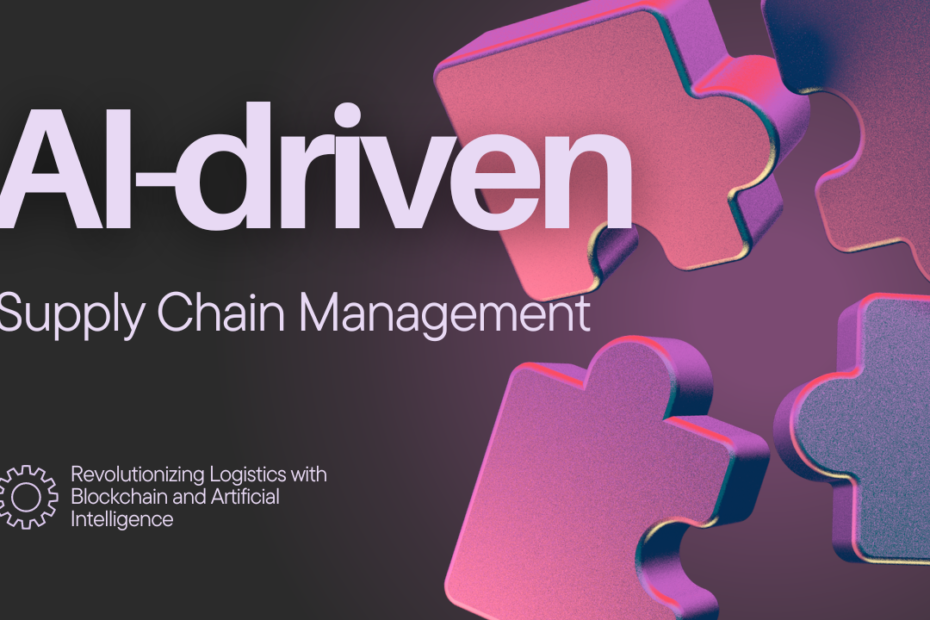The global supply chain is a complex network, and disruptions can occur at any point, impacting businesses and consumers alike. Recent events like the COVID-19 pandemic have highlighted the need for more resilient and adaptable supply chains. Fortunately, technological advancements are paving the way for a new era in logistics management. This article explores the convergence of blockchain and artificial intelligence (AI) in transforming supply chain management.
Blockchain: Ensuring Transparency and Traceability
Blockchain technology, renowned for its secure and decentralized nature, is revolutionizing supply chain tracking. It acts as a digital ledger, recording every step a product takes on its journey from raw materials to the end consumer. Each transaction is cryptographically secured, creating an immutable record that fosters trust and transparency.
Here’s how blockchain benefits supply chain management:
- Enhanced Visibility: Participants in the supply chain can access real-time data on a product’s location, origin, and condition. This transparency empowers businesses to identify inefficiencies and potential bottlenecks.
- Improved Provenance Tracking: Consumers can gain valuable insights into the ethical sourcing and sustainability practices of a product.
- Reduced Counterfeiting: Blockchain’s tamper-proof nature makes it difficult to introduce fake goods into the supply chain.
AI: Optimizing Logistics and Predicting Demand
Artificial intelligence plays a crucial role in analyzing the vast amount of data generated by a blockchain-powered supply chain. AI algorithms can identify patterns, predict trends, and make data-driven recommendations to optimize logistics. Here are some key applications of AI in supply chain management:
- Demand Forecasting: AI can analyze historical sales data, consumer trends, and external factors to predict future demand more accurately. This allows businesses to optimize inventory levels and production planning, minimizing the risk of stockouts or overstocking.
- Route Optimization: AI algorithms can analyze traffic patterns, weather conditions, and fuel costs to recommend the most efficient routes for transportation, leading to faster delivery times and reduced transportation costs.
- Predictive Maintenance: AI can analyze sensor data from equipment to predict potential failures and schedule maintenance proactively, minimizing downtime and ensuring smooth operations.
The Convergence: A Powerful Force for Supply Chain Transformation
The convergence of blockchain and AI offers a powerful combination for revolutionizing supply chain management. Here’s how they work together:
- Real-time Data Analysis: Blockchain provides secure, real-time data on product movement, which AI can analyze to make informed decisions regarding inventory management, logistics, and production planning.
- Risk Management: AI can analyze blockchain data to identify potential disruptions in the supply chain, such as delays at ports or supplier issues. This allows businesses to take proactive measures to mitigate risks and ensure uninterrupted operations.
- Enhanced Collaboration: Blockchain fosters transparency and trust among supply chain participants. AI can analyze this data to facilitate better collaboration, leading to more efficient and cost-effective operations.
In conclusion, the convergence of blockchain and AI presents a significant opportunity to transform supply chain management. By leveraging the strengths of both technologies, businesses can create more efficient, transparent, and secure supply chains, ultimately leading to a more resilient and responsive global logistics network.
Challenges and Considerations for AI-driven Supply Chain Management with Blockchain
While the potential of AI-driven supply chain management with blockchain is undeniable, there are challenges and considerations to address for successful implementation.
- Data Integration and Standardization: Integrating data from various sources across the supply chain can be complex. Standardized data formats are crucial for AI algorithms to function effectively.
- Data Security and Privacy: Security concerns surrounding sensitive data on a blockchain network need to be addressed. Businesses must ensure compliance with data privacy regulations.
- Scalability and Infrastructure: Implementing these technologies requires robust IT infrastructure that can handle the vast amount of data generated. Scalability is essential for accommodating future growth.
- Talent and Expertise: Businesses need to invest in upskilling their workforce or acquiring talent with expertise in AI, blockchain, and data analytics.
- Cost of Implementation: The initial investment in developing and implementing AI-powered blockchain solutions can be significant. However, the long-term benefits in terms of efficiency and cost savings can outweigh the initial investment.
The Road Ahead: A Collaborative Future for Supply Chains
Despite the challenges, the potential benefits of AI-driven supply chain management with blockchain are significant. As these technologies mature and become more accessible, we can expect to see wider adoption across industries. Collaboration between businesses, technology providers, and government agencies will be crucial in creating a standardized and secure ecosystem for AI-powered blockchain solutions in supply chains.
The future of supply chains is likely to be characterized by increased automation, real-time visibility, and data-driven decision-making. By embracing AI and blockchain, businesses can build more resilient and adaptable supply chains, ensuring a smoother flow of goods and services across the globe.

